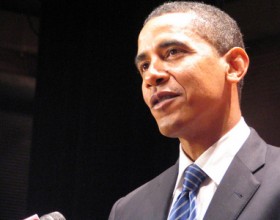 The Americans have never cared for our National Health Service. They say they only have to look at our teeth to know that anything delivering such a service deserves immediate and compassionate euthanasia. Those Americans who live here joke that if they ever get ill, the first thing they will do is get a plane home.
The Americans have never cared for our National Health Service. They say they only have to look at our teeth to know that anything delivering such a service deserves immediate and compassionate euthanasia. Those Americans who live here joke that if they ever get ill, the first thing they will do is get a plane home.
Now, as President Barack Obama seeks to reform healthcare in the United States, the NHS has come in for a fearful bashing. Horror stories – some true, some false – have been splashed about to excite hostility to “socialist medicine”. An American business magazine claimed Professor Stephen Hawking would not have received NHS treatment because of his disability. The reverse, of course, is true. Others speak darkly of “death panels” to decide who will live or die. So strong has been the hysteria and the discrediting of our health system that when Daniel Hannan, the British MEP, gave a critique of the NHS on a right-wing American chat show, both David Cameron and Gordon Brown felt obliged to reaffirm their undying faith in the NHS.
There is much ignorance on both sides of the Atlantic. Most Britons do not realise that the US government already pays for half of all health spending. Nor do Americans yet know what the president is proposing because it has not been decided. And the idea that Mr Obama is trying to set up an American health service like ours is wrong; US policy discussions are concerned with the state provision of health insurance, not with the state provision of health treatment, so emotional comparisons with the NHS are largely irrelevant.
Mr Obama’s problem is twofold. First, one in six Americans is not covered by healthcare insurance. Second, the cost of all US healthcare is frighteningly high at 16% of the economy, compared with 8.4% in Britain and 11% in France. That is the cost now. When you add in the uninsured millions and allow for rocketing numbers of the old and sick, America’s future medical burden is horrifying: one authoritative report says it could bankrupt the country within 50 years. Americans are also suspicious of the president’s figures. The aim of expanding insurance cover while cutting costs is contradictory. Americans fear more tax rises and losing their generally excellent healthcare. Put bluntly, they don’t want to give another damn red cent to Uncle Sam.
While the debate there may seem unsavoury and uncharitable, there is no reason to feel smug here. Our NHS may be cheaper but it is not as good; mortality rates and waiting times are better in America. Above all, Americans have the freedom to choose treatment and doctors. Unlike us, they feel they can control their medical destiny and they instinctively dislike the NHS, which was set up in an era of nationalisation, rationing and the view that doctors and Whitehall knew best.
However, even though Americans spend twice as much as us, their health provision is not twice as good. Although the NHS may be bureaucratic and inefficient, it is a surprise to think it is relatively cost-efficient. Indeed, one recent study showed the United States was the least effective of 19 industrialised nations in providing healthcare for those aged under 75 who were amenable to treatment. That was put down to the inadequate care given to the 47m Americans who are not insured.
Socialised medicine does not have to be like this: European and Scandinavian systems have much better records in treating the sick. They have avoided the monolithic state system in favour of diversity and choice. Britain and America should learn from them.















